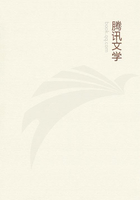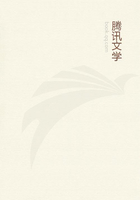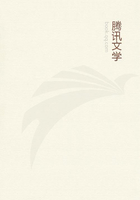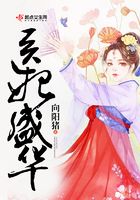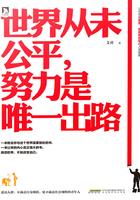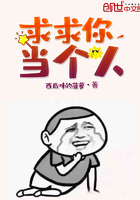"Conrad Gesner, who kept open house there for all learned men who came into his neighborhood. Gesner was not only the best naturalist among the scholars of his day, but of all men of that century he was the pattern man of letters. He was faultless in private life, assiduous in study, diligent in maintaining correspondence and good-will with learned men in all countries, hospitable--though his means were small-- to every scholar that came into Zurich. Prompt to serve all, he was an editor of other men's volumes, a writer of prefaces for friends, a suggestor to young writers of books on which they might engage themselves, and a great helper to them in the progress of their work. But still, while finding time for services to other men, he could produce as much out of his own study as though he had no part in the life beyond its walls."
A large majority of these early naturalists and botanists were physicians.[3] The Greek art of observation was revived in a study of the scientific writings of Aristotle, Theophrastus and Dioscorides and in medicine, of Hippocrates and of Galen, all in the Greek originals. That progress was at first slow was due in part to the fact that the leaders were too busy scraping the Arabian tarnish from the pure gold of Greek medicine and correcting the anatomical mistakes of Galen to bother much about his physiology or pathology. Here and there among the great anatomists of the period we read of an experiment, but it was the art of observation, the art of Hippocrates, not the science of Galen, not the carefully devised experiment to determine function, that characterized their work. There was indeed every reason why men should have been content with the physiology and pathology of that day, as, from a theoretical standpoint, it was excellent. The doctrine of the four humors and of the natural, animal and vital spirits afforded a ready explanation for the symptoms of all diseases, and the practice of the day was admirably adapted to the theories. There was no thought of, no desire for, change. But the revival of learning awakened in men at first a suspicion and at last a conviction that the ancients had left something which could be reached by independent research, and gradually the paralytic-like torpor passed away.
[3] Miall: The Early Naturalists, London, 1912.
The sixteenth and seventeenth centuries did three things in medicine-- shattered authority, laid the foundation of an accurate knowledge of the structure of the human body and demonstrated how its functions should be studied intelligently--with which advances, as illustrating this period, may be associated the names of Paracelsus, Vesalius and Harvey.
PARACELSUS
PARACELSUS is "der Geist der stets verneint." He roused men against the dogmatism of the schools, and he stimulated enormously the practical study of chemistry. These are his great merits, against which must be placed a flood of hermetical and transcendental medicine, some his own, some foisted in his name, the influence of which is still with us.
"With what judgment ye judge it shall be judged to you again" is the verdict of three centuries on Paracelsus. In return for unmeasured abuse of his predecessors and contemporaries he has been held up to obloquy as the arch-charlatan of history. We have taken a cheap estimate of him from Fuller and Bacon, and from a host of scurrilous scribblers who debased or perverted his writings. Fuller[4] picked him out as exemplifying the drunken quack, whose body was a sea wherein the tide of drunkenness was ever ebbing and flowing-- "He boasted that shortly he would order Luther and the Pope, as well as he had done Galen and Hippocrates. He was never seen to pray, and seldome came to Church. He was not onely skilled in naturall Magick (the utmost bounds whereof border on the suburbs of hell) but is charged to converse constantly with familiars. Guilty he was of all vices but wantonnesse: . . . "
[4] Fuller: The Holy and Profane State, Cambridge, 1642, p. 56.
Francis Bacon, too, says many hard things of him.[5]
[5] Bacon: Of the Proficience and Advancement of Learning, Bk.
II, Pickering ed., London, 1840, p. 181. Works, Spedding ed., III, 381.
To the mystics, on the other hand, he is Paracelsus the Great, the divine, the most supreme of the Christian magi, whose writings are too precious for science, the monarch of secrets, who has discovered the Universal Medicine. This is illustrated in Browning's well-known poem "Paracelsus," published when he was only twenty-one; than which there is no more pleasant picture in literature of the man and of his aspirations. His was a "searching and impetuous soul" that sought to win from nature some startling secret--". . . a tincture of force to flush old age with youth, or breed gold, or imprison moonbeams till they change to opal shafts!" At the same time with that capacity for self-deception which characterizes the true mystic he sought to cast Light on a darkling race; save for that doubt, I stood at first where all aspire at last To stand: the secret of the world was mine.
I knew, I felt (perception unexpressed, Uncomprehended by our narrow thought, But somehow felt and known in every shift And change in the spirit,--nay, in every pore Of the body, even)--what God is, what we are, What life is--. . .[6]
[6] Robert Browning: Paracelsus, closing speech.

